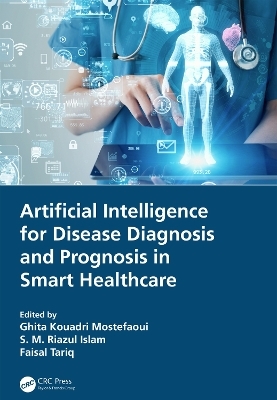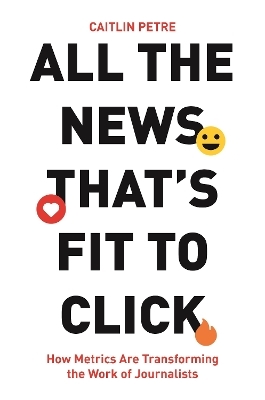
Artificial Intelligence for Disease Diagnosis and Prognosis in Smart Healthcare
CRC Press (Verlag)
978-1-032-16830-2 (ISBN)
Artificial Intelligence (AI) in general and machine learning (ML) and deep learning (DL) in particular and related digital technologies are a couple of fledging paradigms that next-generation healthcare services are sprinting towards. These digital technologies can transform various aspects of healthcare, leveraging advances in computing and communication power. With a new spectrum of business opportunities, AI-powered healthcare services will improve the lives of patients, their families, and societies. However, the application of AI in the healthcare field requires special attention given the direct implication with human life and well-being. Rapid progress in AI leads to the possibility of exploiting healthcare data for designing practical tools for automated diagnosis of chronic diseases such as dementia and diabetes. This book highlights the current research trends in applying AI models in various disease diagnoses and prognoses to provide enhanced healthcare solutions. The primary audience of the book are postgraduate students and researchers in the broad domain of healthcare technologies.
Features
In-depth coverage of the role of AI in smart healthcare
Research guidelines for AI and data science researchers/practitioners interested in the healthcare sector
Comprehensive coverage on security and privacy issues for AI in smart healthcare
Ghita Kouadri Mostefaoui is currently an Associate Professor at the Department of Computer Science, University College London. Her current teaching includes programming, computer architecture, and software engineering. She received her PhD in computer science from both the University of Fribourg, Switzerland and Université Pierre et Marie Curie (Paris 6). Ghita is a Fellow of the Higher Education Academy. S. M. Riazul Islam is currently a Senior Lecturer in Computer Science at the University of Huddersfield, United Kingdom. Before moving to the UK, he was an Assistant Professor at the Department of Computer Science and Engineering, Sejong University, South Korea, from 2017 to 2022. Dr. Islam's prior affiliations were at Inha University as a Postdoctoral Fellow, at Samsung R&D Institute as a Senior Engineer, and at the University of Dhaka as an Assistant Professor in EEE. He received his Ph.D. in Information and Communication Engineering from Inha University, South Korea, in 2012. Dr. Islam's research interests include applied AI, machine learning, data science, and IoT. Faisal Tariq is currently a Senior Lecturer at the James Watt School of Engineering, University of Glasgow, United Kingdom. He received his PhD degree from The Open University, UK. His research interests include applications of Artificial Intelligence (AI) and Machine Learning (ML) in various domains including smart wireless communications, healthcare technology, cyber security and intelligent internet of Things (IIoT). He is a senior member of IEEE and fellow of the Higher Education Academy.
1. Introduction. 2. Machine Learning for Disease Assessment. 3. Precision Medicine and Future Healthcare. 4. AI-driven Drug Response Prediction for Personalised Cancer Medicine. 5. Skin Disease Recognition and Classification Using Machine Learning and Deep Learning in Python. 6. COVID-19 Diagnosis Based Deep Learning Approaches for COVIDX Dataset: A Preliminary Survey. 7. Automatic Grading of Invasive Breast Cancer Patients for the Decision of Therapeutic Plan. 8. Prognostic Role of CALD1 in Brain Cancer: A Data-driven Review. 9. Artificial Intelligence for Parkinson's Disease Diagnosis: A Review. 10: Breast Cancer Detection: A Survey. 11. Review of Artifact Detection Methods for Automated Analysis and Diagnosis in Digital Pathology. 12. Machine Learning Enabled Detection and Management of Diabetes Mellitus. 13. IoT and Deep Learning-based Smart Healthcare with an Integrated Security System to Detect Various Skin Lesions. 14. Real-Time Facemask Detection Using Deep Convolutional Neural Network-based Transfer Learning. 15. Security Challenges in Wireless Body Area Networks for Smart Healthcare. 16. Machine Learning Based Security and Privacy Protection Approach to Handle the Physiological Data. 17. Conclusion: Future Challenges in Artificial Intelligence for Smart Healthcare.
| Erscheinungsdatum | 13.03.2023 |
|---|---|
| Zusatzinfo | 11 Tables, black and white; 85 Line drawings, black and white; 45 Halftones, black and white; 130 Illustrations, black and white |
| Verlagsort | London |
| Sprache | englisch |
| Maße | 178 x 254 mm |
| Gewicht | 840 g |
| Themenwelt | Informatik ► Theorie / Studium ► Algorithmen |
| Informatik ► Theorie / Studium ► Künstliche Intelligenz / Robotik | |
| Informatik ► Weitere Themen ► Bioinformatik | |
| ISBN-10 | 1-032-16830-7 / 1032168307 |
| ISBN-13 | 978-1-032-16830-2 / 9781032168302 |
| Zustand | Neuware |
| Informationen gemäß Produktsicherheitsverordnung (GPSR) | |
| Haben Sie eine Frage zum Produkt? |
aus dem Bereich


